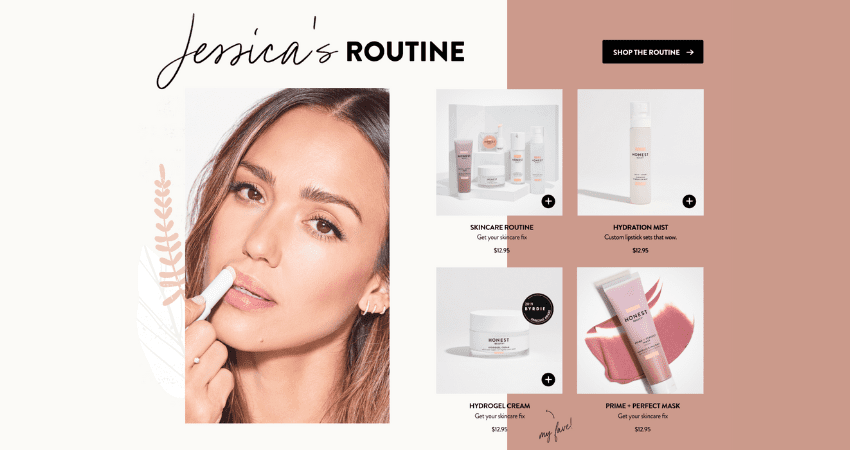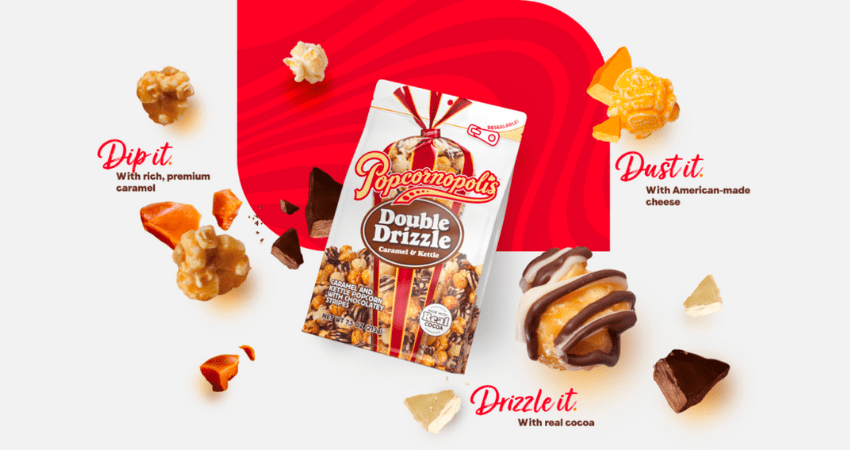Social proof marketing facilitates business decisions and helps drive strategic marketing experiences.
Have you ever checked a brand’s ratings before making a purchase? Do you read a product’s reviews before moving forward with the purchase? Will you ask friends for their experience before planning your next vacation? That’s social proof in action: relying on the informed input of others to guide your next action. It’s more common than you might think: 83% of consumers say recommendations are what make them more likely to purchase a product or service.
According to Alex Mathias, COO, “investing in social proof should be part of every brand’s marketing strategy.” The influence on the target audience’s perception during the evaluation phase may be incredibly important.
Social Proof Marketing
Social proof makes people pause to check out a social media post because it’s buzzing with high engagement. It gets them to take a chance on a brand because of the positive things others are saying. It’s also the reason people check out a new tool or software that everyone seems to be raving about.
Social proof marketing is effective because it helps people make decisions with less anxiety. It reduces friction when consumers are faced with competing choices by providing comforting evidence that others have found value in a brand. In some contexts, social proof marketing can also build a sense of FOMO–fear of missing out.
The data back this up:
- 88% of consumers trust professional user reviews as much as personal recommendations.
- Adding logos of relevant business customers to a company’s business website can increase conversion by a whopping 400%.
- The average consumer reads 10 online reviews before making a purchase decision.
- 57% of consumers will buy or use a service only if it has at least a 4-star rating average.
- For 50% of consumers, their very next step after reading a positive review about a company is to visit the company’s website.
Six Types of Social Proof
“Identify the pieces of customer data already hanging around you in order to understand, and attract the right target customers.” – Neil Patel, expert marketer, New York Times bestselling author, Forbes Top 10 Marketer
Social proof falls into six broad categories. Understanding your target audience will help a brand select the type(s) that are likely to work best.
Expert. Consumers rely on industry thought leadership content, leaders, and influencers to validate a purchase decision. An example of this is collaborating with expert-level specialists at a digital agency that’s knowledgeable about what’s happening in marketing now and understands the present cultural forces that influence customers today.
Celebrity. Celebrity endorsers provide social proof because some consumers want to emulate a famous person. However, they can backfire when a celebrity’s values don’t align with a brand’s.
Social Responsibility. Patagonia, recently announced that profits go to fighting climate change. That’s a big deal as many customers believe companies should do more to support the health of our planet. When a company’s values align with our own, we are much more likely to buy and share.
User. Often buyers look to others who have experience with a brand as direct evidence to support their purchase decision. This is why companies like Razor Scooters and The Honest Company take steps to make sure they present ratings and reviews from verified purchasers.
Wisdom of Crowds. Some consumers are encouraged when they know that many buyers think highly of a product or service. But beware: this works only when a brand is trusted. Those who cherry-pick reviews to ensure that just positive ratings and reviews appear quickly lose buyers’ trust.
Wisdom of Friends: How often have you relied on people you know and trust for their opinion? Savvy social marketers like Popcornopolis use information about connections who showed interest in something to gain your trust.
Business Credentials. Prospective buyers often look for signs of authority and expertise before making a purchase decision. Credentials like licenses, green certifications, and meticulously verified client reviews add a level of trust by leveraging associations with reputable organizations.

Ways to add Social Proof
It isn’t difficult to add social proof to your marketing strategy. Combine qualitative information like stories, testimonials, and reviews with quantitative data, numbers, and facts to reinforce your brand’s story.
The following examples can be highly effective when targeted at the right audience. Many can be delivered in several different formats to increase impact; for example, combine an animated video of a customer testimonial with graphic design highlighting key points.
- Case studies and white papers are an excellent way to share a detailed story about a client’s project and the results your brand achieved.
- Endorsements from influencers who share your brand’s values.
- User-generated content like reviews, ratings, stories and photos reinforce positive messages and show how your brand makes them feel.
- Collaboration with an expert on a video, webinar, or e-book.
- Client testimonials, especially when combined with a name and photo.
- Verified account badges for on-brand social media accounts.
- Social media shares by your customers.
- Shout-outs from and to your customers on social media
- Customer logos added to a website and brand marketing campaigns.
- Real-time statistics like the number of customers or a number of followers.
- Industry rankings, awards, and recognition.
- Earned media, including positive news, have the added advantage of including backlinks to your website.
Social Proof Marketing and Search
A happy customer can outsell even the most compelling copy–that makes social proof marketing so powerful. The more value your brand provides to customers, the more willing they are to encourage others to give your brand a chance.
But demonstrating expertise, authority, and trustworthiness with social proof is also important for search. Search engines like Google use various signals to determine a site’s reliability. Their systems judge the veracity and authority of sites that position themselves as experts. While social proof will not improve a brand’s search results rankings, these signals do help search engines better understand which content to ignore.

Social Proof Marketing for Brands
Building social proof into your brand marketing strategy can be straightforward.
- Develop a clear understanding of your brand goals.
- Determine the metrics that will identify success.
- Identify opportunities where social proof reinforces brand messaging.
- Select the types of social proof that will work best with your target audience.
- Mine past and current customers to gather data.
- Determine how to use each item so you tell a compelling story and capture attention
- Implement, track the metrics, and adjust as needed.
At Isadora Agency, we dedicate ourselves to changing the way brands connect with audiences in a digital world.
Contact Isadora Agency directly to learn how we can apply social proof to your brand’s essential digital tools and marketing solutions.